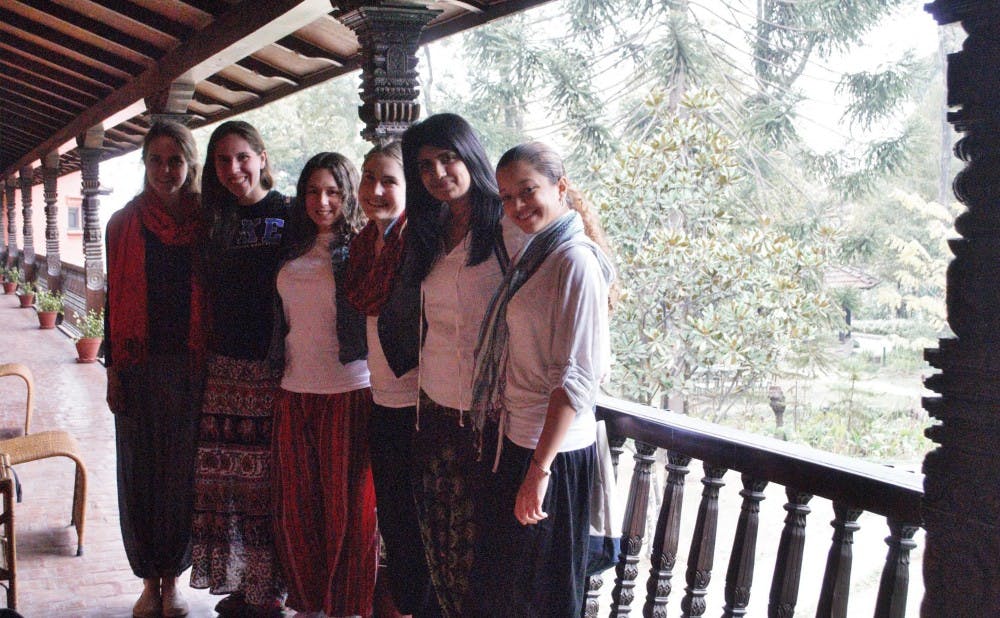Durham refugee agencies are encouraged by the Obama administration’s decision to allow more refugees into the U.S. but are also pressing for more expansive measures.
President Barack Obama recently announced that the number of worldwide refugees accepted per year into the United States will total up to 100,000 in 2017—up from the current annual cap of 70,000. Durham County has long been receptive to the resettlement of refugees, and Durham humanitarian organizations such as World Relief Durham have pressed for an even stronger response to what they consider to be the largest refugee crisis since World War II. At the same time, however, questions have emerged as to the economic costs of resettling newly arrived refugees.
“When you think of the economic impact of refugees, in the short term it is more costly to look at the first year housing of refugees,” WRD Office Director Adam Clark explained.
Clark added, however, that refugees are a net benefit to the economy in the long run. He cited a 2012 study by the Chmura Economics and Analytics Group—an economic consulting firm—that analyzed the impact of national refugee programs in Cleveland and found that refugee service agencies spent a combined 4.8 million dollars on refugees in 2012. The report also found, however, that the total economic impact of incoming refugees was about 48 million dollars in economic productivity through job growth, supply-chain effects and consumer spending.
“It is important to note that the survey was conducted over a five-year period to take into account the five-year path to citizenship required for all refugees,” Clark said.
WRD measures outmigration and retention rate as indicators of refugee success in the resettlement process. The agency noted that a majority of refugees who come to the Research Triangle stay in the area because there are enough jobs to contribute to the local economy.
“Refugees have a higher entrepreneurial rate than native born United States citizens and a higher retention rate,” Clark said.
After fleeing persecution and violence, most refugees travel to Durham because of pre-existing ties to the region, said sophomore Rishi Sachdev, a tutor at the MASTERY Refugee Tutoring program sponsored by the Kenan Institute for Ethics.
Due to the high refugee retention rates, local refugee agencies have steadily grown in size, Clark said, adding that between 200-300 refugees come to Durham agencies each year. He also noted that a large proportion of the refugees WRD deals with are coming from Syria.
In 2010, North Carolina was 10th nationwide in terms of refugees received, with Durham accounting for nine percent of the State’s resettlement sites, according to the 2011 Durham County Community Health Assessment.
The University has several programs that allow students to engage with refugees. The DukeImmerse Uprooted/Rerouted program and MASTERY tutoring initiative, both associated with the Kenan School for Ethics, allow Duke students to get directly involved with children of refugees abroad and within the local community. While DukeImmerse assists refugee populations abroad, MASTERY Refugee Tutoring underscores the education of refugee youth in Durham.
Sachdev emphasized the program’s two-pronged approach that focuses on students’ academic potential and collective mentorship.
“MASTERY is modeled on a one-to-one student ratio so this makes it possible to address each students needs in a very individualized way,” he said. “It is much more effective than the opportunities provided in a typical school setting.”
The Interfaith Refugee Ministry—located in New Bern, N.C.—integrates refugees by assisting with housing, furnishings, enrolling child refugees in schools and helping adults learn English.
IRM Executive Director Susan Husson reported that the types of refugees received changes year-after-year as global dynamics do. The IRM began working with refugees from Bosnia and Burma and now works with people from Vietnam, Burma, Cuba, Colombia and Iraq.
“People who came as refugees in the 1990s from Bosnia, that situation is not a refugee situation anymore,” Husson said. “The Burma situation has been going on since the 1960s, but due to the absence of democracy and religious freedom throughout African nations, there are many Congolese and Somali refugees coming to Durham.”
Refugees are required to apply for permanent residence after one year and attend cultural orientation classes. All refugees emerging from the IRM are self-sufficient after four to six months, she said, often working in factories, housekeeping, hotels or poultry farms.
Sachdev urged people to volunteer with refugee assistance programs, adding that these initiatives benefit both the refugees and the student.
“It is essential that Duke students be exposed to the plight that refugee youth face in education and social interactions with people who don’t share the same customs or speak the same language,” he said.
Get The Chronicle straight to your inbox
Signup for our weekly newsletter. Cancel at any time.

